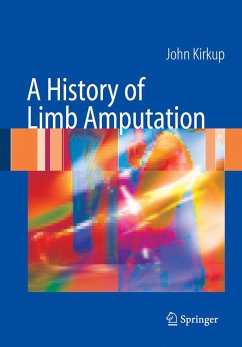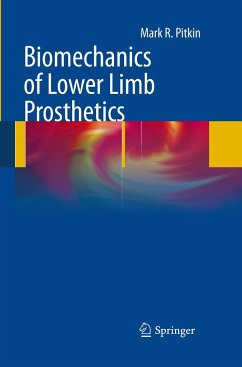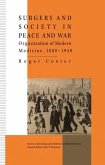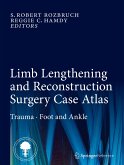This book opens with a unique historical review of natural amputations due to congenital absence, disease, frostbite, animal trauma, and to punishment and ritual. The advent of surgical amputation and its difficulties form a major part of the book, summarising the evolution of the control of haemorrhage and infection, pain relief, techniques, instrumentation, complications, prostheses, results and case histories. Alternative procedures, increasingly important in the last two centuries, are also debated.
From the reviews:
"After a description of the more common causes for amputation of the limbs, the author analyses more extensively the different causes:-trauma cases of various etiologies,-ritual, punitive, legal amputation,-iatrogenic causes,-war amputations. ... A very uncommon book ... bringing some interesting overview along the history of surgery." -- Jean-Yves Jenny, European Journal of Orthopaedic Surgery & Traumatology, Vol. 21, 2011
"This is a well written and beautifully illustrated history of amputation, describing the causes and techniques of amputation, and ending with more recent developments in rehabilitation and prosthetics. ... the book should be seen as a fascinating insight into how surgical and anaesthetic techniques, and operative instruments, have developed over the centuries. ... Surgeons and physicians from a variety of different specialties, and anyone with an interest in medical history, will enjoy it." -- I. Loftus, British Journal of Surgery, Vol. 95, October, 2008
"The author has provided a thoroughly researched history of human limb amputation from prehistory to the present from both a patient's and a physician's perspective. ... 'The author's goals are worthwhile because there is no similar book that provides specific information on amputation, a topic of major concern while we are engaged in war. ... The author has broadly and carefully treated an unattractive subject with professional detachment, patient empathy, and a concern for the level of societal acceptance." -- Ralph D. Arcari, National Taiwan University Library, August, 2007
"A History of Limb Amputation is a work of scholarship and comes from the pen of an erudite writer. ... the most elevating theme in Kirkup's book is the strength of the human spirit, for so many cases of amputation are related without any form of anaesthetic, in which the patient exhibited extraordinary calm and patience. ... In short this book should be bought and read by all aspirants to medicine. Law Lords and NHS managers would also come to no harm from reading it." -- R. Birch, The Journal of Bone and Joint Surgery, Vol. 90 (18), October, 2008
"After a description of the more common causes for amputation of the limbs, the author analyses more extensively the different causes:-trauma cases of various etiologies,-ritual, punitive, legal amputation,-iatrogenic causes,-war amputations. ... A very uncommon book ... bringing some interesting overview along the history of surgery." -- Jean-Yves Jenny, European Journal of Orthopaedic Surgery & Traumatology, Vol. 21, 2011
"This is a well written and beautifully illustrated history of amputation, describing the causes and techniques of amputation, and ending with more recent developments in rehabilitation and prosthetics. ... the book should be seen as a fascinating insight into how surgical and anaesthetic techniques, and operative instruments, have developed over the centuries. ... Surgeons and physicians from a variety of different specialties, and anyone with an interest in medical history, will enjoy it." -- I. Loftus, British Journal of Surgery, Vol. 95, October, 2008
"The author has provided a thoroughly researched history of human limb amputation from prehistory to the present from both a patient's and a physician's perspective. ... 'The author's goals are worthwhile because there is no similar book that provides specific information on amputation, a topic of major concern while we are engaged in war. ... The author has broadly and carefully treated an unattractive subject with professional detachment, patient empathy, and a concern for the level of societal acceptance." -- Ralph D. Arcari, National Taiwan University Library, August, 2007
"A History of Limb Amputation is a work of scholarship and comes from the pen of an erudite writer. ... the most elevating theme in Kirkup's book is the strength of the human spirit, for so many cases of amputation are related without any form of anaesthetic, in which the patient exhibited extraordinary calm and patience. ... In short this book should be bought and read by all aspirants to medicine. Law Lords and NHS managers would also come to no harm from reading it." -- R. Birch, The Journal of Bone and Joint Surgery, Vol. 90 (18), October, 2008








